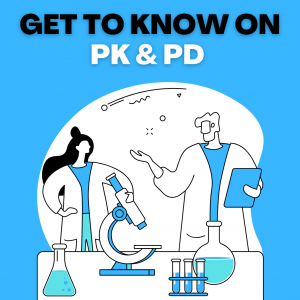Free knowledge to monitor the world of events. Have a look at our must read Blogs on Pharma, Finance, HR, Health and Cross Industry.
What is PK /PD?
2022-08-16
On our previous blog we spoke on impurities. So, let’s explore something new. Do you know what’s the connection between a drug and human body? Well on todays blog will find out some of the common doubts on PK & PD.
What is PK /PD?
Pharmacokinetics (PK) and Pharmacodynamics (PD) are two important concepts in the pharmaceutical industry that are used to study the effects of drugs in the body. PK refers to the study of the movement of drugs within the body, including how they are absorbed, distributed, metabolized, and excreted. PD, on the other hand, refers to the study of the drug's effects on the body, including its mechanism of action, potency, and toxicity. By understanding both PK and PD, researchers can optimize drug dosing regimens and ensure that drugs are safe and effective for use in patients.
WHAT THE IMPACT OF PK & PD IN DRUG DEVELOPMENT?
PK and PD play a crucial role in drug development. PK studies are used to determine the pharmacokinetic profile of a drug, including its absorption, distribution, metabolism, and excretion. This information is used to develop dosing regimens and predict drug behavior in patients.
PD studies, on the other hand, are used to determine how drugs interact with the body to produce a therapeutic effect. This information is used to optimize drug efficacy and minimize side effects.
The use of PK and PD studies in drug development can help to improve the safety and efficacy of drugs. By understanding how drugs are absorbed, distributed, metabolized, and excreted by the body, dosing regimens can be optimized to ensure that patients receive the right amount of medication at the right time. This can help to minimize side effects and ensure that patients receive the maximum therapeutic benefit from the drug.
PD studies can also help to improve drug efficacy by providing information on how drugs interact with the body. This information can be used to develop drugs that target specific biological pathways and minimize off-target effects.
Overall, the use of PK and PD studies in drug development is essential for improving drug safety and efficacy. By optimizing dosing regimens and targeting specific biological pathways, drug developers can develop drugs that provide maximum therapeutic benefit while minimizing side effects.

WHAT IF AI TAKEOVER PK & PD
Artificial intelligence (AI) has the potential to transform many industries, including the pharmaceutical industry. However, the idea of AI taking over PK and PD is unlikely to happen in the near future. While AI can play a significant role in drug development and optimization of dosing regimens, human expertise and experience are still necessary to ensure the safety and efficacy of drugs.
AI can be used to analyze large amounts of data and identify patterns that may be missed by human researchers. This can include analyzing pharmacokinetic and pharmacodynamic data, as well as genomic and proteomic data. AI algorithms can also be used to design new drugs, predict their pharmacokinetic profiles, and optimize dosing regimens.
However, there are limitations to the use of AI in PK and PD. One of the primary challenges is the lack of data on certain patient populations. AI algorithms rely on large data sets to make accurate predictions. However, data on certain patient populations, such as pregnant women or patients with rare diseases, may be limited. In these cases, human expertise is necessary to make informed decisions.
Another limitation of AI is the inability to fully understand the complex interactions between drugs and the human body. While AI algorithms can make predictions based on data, they do not have the same level of understanding as a human researcher who can interpret the data in the context of the patient's overall health status.
Furthermore, regulatory bodies such as the Food and Drug Administration (FDA) require extensive testing and validation before a drug can be approved for human use. AI algorithms cannot replace human clinical trials and regulatory oversight, as they lack the ability to fully assess the safety and efficacy of a drug.
Conclusion
In conclusion, PK and PD are crucial concepts in pharmacology that play a significant role in the development and optimization of drugs. PK studies provide information on how drugs are absorbed, distributed, metabolized, and excreted by the body, which is used to develop dosing regimens and predict drug behavior in patients. PD studies provide information on how drugs interact with the body to produce a therapeutic effect, which is used to optimize drug efficacy and minimize side effects. Overall, the use of PK and PD studies in drug development is essential for improving drug safety and efficacy and providing maximum therapeutic benefit to patients.
Do you want to understand more about PK/PD? Join our upcoming PK/PD in Drug Discovery and Development Masterclass.
By Nafhan Naseem, Jr. Social Media Executive & IT Support, GLC Europe, Colombo Office, Sri Lanka.
Get a feel for our events

Training Program for CMC Leaders - EU edition
14th September 2026 - 09th April 2027
Rich with practical insights and real-world applications
learn more >>
Training Program for CMC Leaders - US edition
14th September 2026 - 09th April 2027
Rich with practical insights and real-world applications
learn more >>
Advanced Stability Testing of Pharmaceuticals MasterClass - US edition
24-27 February, 2026
Increase the likelihood of studies receiving regulatory approval
learn more >>












